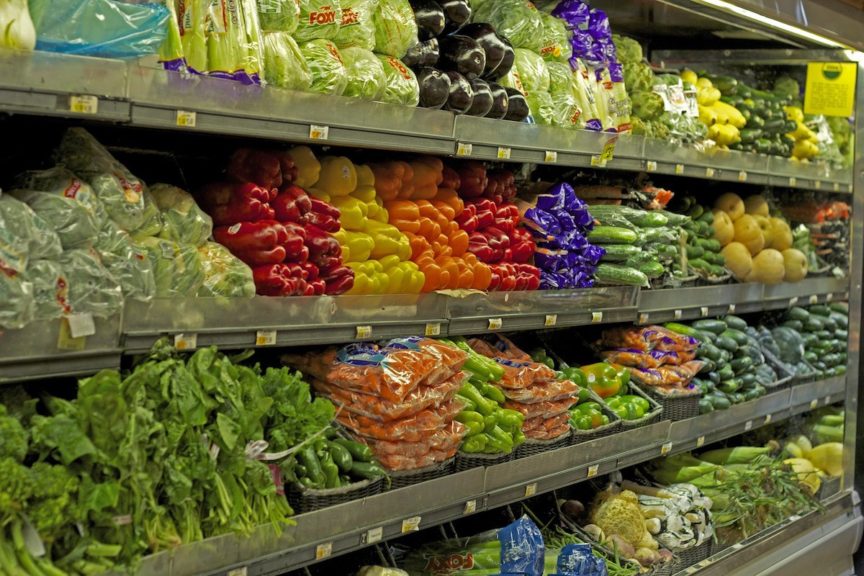Consumers today have many choices when it comes to food, especially at the grocery store. With over 30,000 items and numerous brand names, how does one go about choosing foods that are enjoyable, affordable and that provide proper nutrition? Here are some supermarket shopping solutions to help select the most nutritious food options in all aisles of the store easily and quickly.
The List
Before you head out to the supermarket, take the time to make a list. It will save you time, money and headaches.
What’s to eat this week? List out meal ideas for the week, keeping in mind which days you’ll have time to cook from scratch and which days you’ll be pressed for time to put dinner on the table. When time is short, opt for easy to prepare items such as frozen vegetables and quick to fix meats. If you plan ahead and closely watch your sodium intake you can even work in a frozen entrée occasionally for a really quick meal!
Organize the list. As you create your shopping list, check your menu options against your renal diet plan to ensure you’ve remembered everything from poultry to produce. This will help ensure you are purchasing a variety of foods that provide all of your nutrient needs. Ask your dietitian for a sample “Renal grocery list” which may be helpful.
Beyond the basics. Don’t forget snacks! Everyone enjoys a little boost between meals, so stock the kitchen with nutritious, great tasting options such as low-sodium popcorn, crackers and pretzels.
The Strategy
Don’t go grocery shopping when you are hungry. Leave the decisions to your head, not your stomach. It’s easier to stick to the list if you are not hungry, so plan to make sure to eat something before you go.
Set a routine. Establish a day and time that makes it easy for you to move more quickly and easily through the store and stay focused on your shopping needs.
Save Money. Coupon clipping or finding stores that price match are great strategies for saving money. Coupons are also a great way to expand your food choices. Use a coupon to experiment with a new meal item that you wouldn’t normally purchase.
Kids in tow? An enjoyable grocery shopping experience with children is possible! Use it as an opportunity to give your kids a lesson in color, smell and names of new foods. Engaging them in the food selection can turn a trip to the store into a great teaching tool about nutritious food choices.
Know the Tricks of the Trade
Knowing how to shop and what to look for in each aisle/section of the store helps guarantee a cart stocked with healthful products. Here are a few simple tips to help you ace the aisles:
Produce
Since fresh produce doesn’t last very long, buy only the amount you’ll eat over a few days. And, remember, frozen fruits are a great, longer-lasting option.
Meat, fish, chicken, turkey, eggs Get your protein! These foods are sources of high-quality protein. Stock up on meat, fish and chicken, especially when they are on sale. If packages are too large for your family, pick up a package of small freezer bags, and freeze portions of meat in smaller serving sizes for easier use.
Milk, cheese, yogurt
Most people on dialysis can have one dairy food per day. Check with your dietitian and if this is okay for you, remember to try a variety of dairy products to help boost your intake of protein and vitamins.
Frozen The frozen foods aisle is a great place for convenient foods, but unfortunately many frozen prepared meals and entrees contain more salt than is healthy. But some are better choices than others. Check the nutrition labels and pick items that are lowest in sodium for use on those really “rushed” days when cooking a full meal is a chore.
Bread, Cereal, Pasta, Rice Your choices within this food group can really help round out and complete your meals. Foods made with grains are enriched with vitamins and minerals, and can be dressed up in many ways to add variety to your diet.
Legumes, lentils, nuts
If you struggle to eat enough protein, these foods may help. There are a wide variety of legumes, both dry and canned, available in the supermarket. Pinto, kidney or black beans provide fiber, folate and protein. Nuts and peanut butter contain healthy fats, vitamin E, selenium and protein. Ask your dietitian how you can use these foods in your diet.
Canned foods
Canned fruits and vegetables are great to have on hand because they are similar and sometimes higher in nutrients than their fresh counterparts – and they don’t spoil as quickly. To reduce the sodium in canned vegetables, simply rinse them with tap water before heating.
